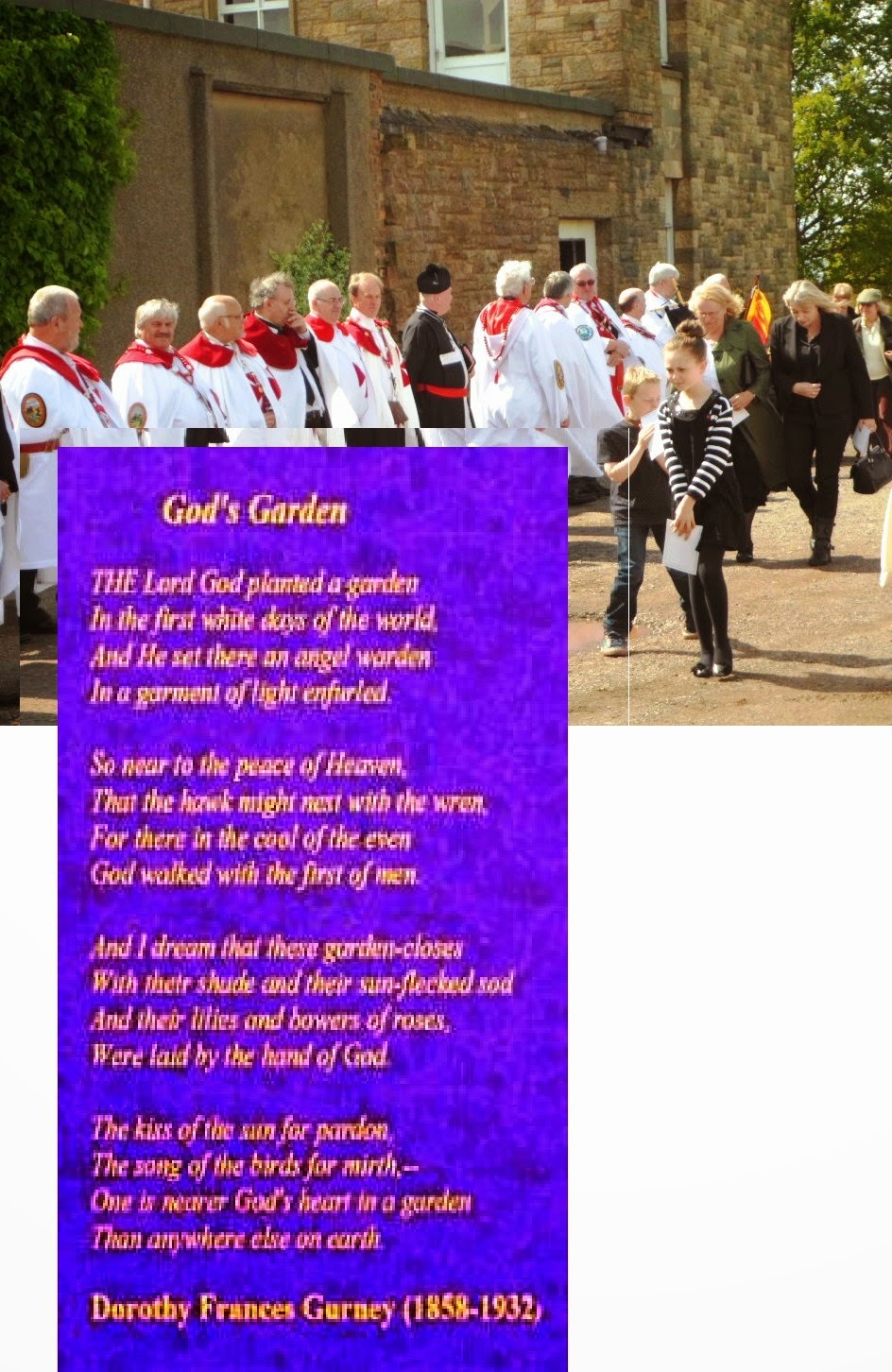Tuesday, 22 July 2014
Saint Mary Magdalene - Memorial
PRAYER OVER THE OFFERINGS
Accept, O Lord, the offerings
presented in commemoration of Saint Mary Magdalene,
whose homage of charity
was graciously accepted by your Only Begotten Son.
Who lives and reigns for ever and ever.
COMMUNION ANTIPHON 2 Co 5:14, 15
The love of Christ impels us, so that those who live may live no longer for themselves, but for him who died for them and was raised.
PRAYER AFTER COMMUNION
May the holy reception of your mysteries, Lord,
instil in us that persevering love
with which Saint Mary Magdalene
clung resolutely to Christ her Master.
Who lives and reigns for ever and ever.
Magnificat com
MEDITATION OF THE DAY
Used with permission
Poem by Saint Therese of Lisieux
From the Poem "To the Sacred Heart of Jesus"
At the holy sepulchre, Mary Magdalene,
Searching for her Jesus, stooped down in tears.
The angels wanted to console her sorrow,
But nothing could calm her grief.
Bright angels, it was not you
Whom this fervent soul came searching for.
She wanted to see the Lord of the Angels,
To take him in her arms, to carry him far away.
Close by the tomb, the last one to stay,
She had come well before dawn.
Her God also came, veiling his light.
Mary could not vanquish him in love!
Showing her at first his Blessed Face,
Soon just one word sprang from his Heart.
Whispering the sweet name of: Mary,
Jesus gave back her peace, her happiness.
O my God, one day, like Mary Magdalene,
I wanted to see you and come close to you.
I looked down over the immense plain
Where I sought the Master and King,
And I cried, seeing the pure wave,
The starry azure, the flower, and the bird:
"Bright nature, if I do not see God,
You are nothing to me but a vast tomb."
SAINT THERESE OF LISlEUX
Saint Therese of Lisieux (+ 1897) was declared a Doctor of the Church in 1997.
The Poetry of Therese of Lisieux, Donald Kinney, OCD., 1995
Statue of the Little Flower
at the Nunraw Abbey porch court yard
 http://www.ecatholic2000.com/therese/stter3.shtml#HEART
http://www.ecatholic2000.com/therese/stter3.shtml#HEART
Not the unabridged translation ...
Poems of SR. TERESA, Carmelite of Lisieux
known as The "Little Flower of Jesus,"
Translated by S.L. EMERY,
Author of the "Inner Life of the Soul."
TO THE SACRED HEART
Beside the tomb wept Magdalen at dawn,-
She sought to find the dead and buried Christ;
Nothing could fill the void now He was gone,
No one to soothe her burning grief sufficed.
Not even you, Archangels heaven assigned!
To her could bring content that dreary day.
Your buried King, alone, she longed to find,
And bear His lifeless body far away.
Beside His tomb she there the last remained,
And there again was she before the sun;
There, too, to come to her the Saviour deigned,-
He would not be, by her, in love outdone.
Gently He showed her then His bless~d Face,
And one word sprang from His deep Heart's recess:
Maryl His voice she knew, she knew its grace;
It came with perfect peace her heart to bless.
One day, my God! I, too, like Magdalen,
Desired to find Thee, to draw near to Thee;
So, over earth's immense, stretching plain,
I sought its Master and its King to see
. Then cried I, though I saw the flowers bloom
In beauty 'neath green trees and azure skies:
O brilliant Naturel thou art one vast tomb,
Unless God's Face shall greet my longing eyes."
A heart I need, to soothe me and to bless,-
A strong support that can not pass away,-
To love me wholly, e'en my feebleness,
And never leave me through the night or day.
There is not one created thing below,
Can love me truly, and can never die.
God become man none else' my needs can know;
He, He alone, can understand my cry.
Thou comprehendest all I need, dear Lord!
To win my heart, from heaven Thou didst come;
For me Thy blood didst shed, O King adored!
And on our altars makest Thy home.
So, if I may not here behold Thy Face,
Or catch the heaenly music of Thy Voice,
I still can live, each moment, by Thy grace,
And in Thy Sacred Heart I can rejoice.
O Heart of Jesus, wealth of tenderness!
My joy Thou art, in Thee I safely hide.
Thou, Who my earliest youth didst charm and bless,
Till my last evening, oh! with me abide,
All that I had, to Thee I wholly gave,
To Thee each deep desire of mine is known.
Whoso his life shall lose, that life shall save;-
Let mine be ever lost in Thine alone!
I know it well, -no righteousness of mine
Hath any value in Thy searching eyes;
Its every breath my heart must draw from Thine,
To make of worth my life's long sacrifice.
Thou hast not found Thine angels without taint;
Thy Law amid the thunderbolts was given;
And yet, my Jesus! I nor fear nor faint.
For me, on Calvary, Thy Heart was riven.
To see Thee in Thy glory face to face,-
I know it well, - the soul must pass through fires.
Choose I on earth my purgatorial place, -
The flaming love of Thy great Heart's desires!
So shall my exiled soul, to death's command,
Make answer with one cry of perfect love;
Then flying straight to heaven its Fatherland,
Shall reach with no delay that home above.
October, 1895.


.jpg)







